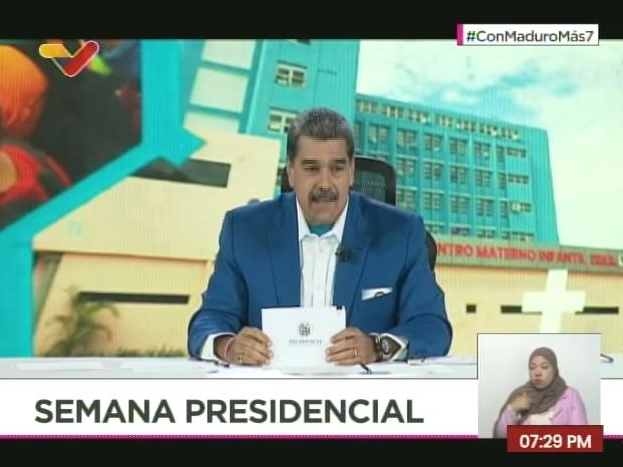US-Venezuela talks bring hope for election
President Nicolas Maduro announced the resumption of talks with the US on his Monday TV programme, Con Maduro +, on 1 July.
On Wednesday, delegations from the governments of Venezuela and the US met virtually to discuss the election this month, as well as other issues.
Venezuela’s sovereign and PDVSA defaulted bonds were up on the news, as they brought up hopes for progress towards normalisation after the election. The parties also agreed to keep communication lines open.
President Nicolas Maduro had announced the meeting would take place on Monday and added that he had rejected propositions for two months. This meeting would be the first since April, when the US did not renew General License 44 arguing there was not sufficient progress towards a “competitive and inclusive” election in July.
On Venezuela’s side were lead negotiator and National Assembly President Jorge Rodriguez, together with Miranda state governor Hector Rodriguez. The US brought forth Daniel Erikson, Senior Director for Western Hemisphere Affairs at the NSC, and Francisco Palmieri, ambassador to Colombia and head of the Venezuelan Affairs Unit.
Analysts believe that for the US, the purpose of the meeting and ensuing communication is to ensure a competitive election. There had been rumours that either the vote could be suspended, or that opposition frontrunner Edmundo Gonzalez Urrutia could be removed from the ballot.
Meanwhile, President Maduro would be seeking to ensure recognition of the results. Given the irregularities already taking place, it is certain that a large part of the opposition will only legitimise results if they win. Venezuela’s incumbent would thus seek to get guarantees from the US, which still does not formally recognise the government in Caracas.
Likewise, Venezuela’s leadership could seek to protect itself from prosecution if they were to lose, which could come domestically and from foreign courts. Notably, the DEA has charges against the head of state and 14 current and former officials for “narco-terrorism, corruption, drug trafficking and other criminal charges.”
In short, Maduro’s government would be accepting to take the risk of losing in the election, in return for recognition in victory or safety in defeat.
Reactions from the Unitary Platform, Venezuela’s main opposition force, were mixed, with spokesperson Omar Barboza welcoming them, but others like Andres Caleca criticising that they are left out in government-to-government talks. Opposition leader Maria Corina Machado and presidential candidate Edmundo Gonzalez did not publicly comment.
It is unlikely that sanctions relief could come before the vote, given that it would not provide additional resources to the government fast enough, while it would be politically costly for the White House.
The timing of the talks, just after the first US debate, is also important. President Biden has come out with considerably lower ratings, shrinking his chances of re-election in November.
For live updates and more information, sign up to Orinoco Insider.

